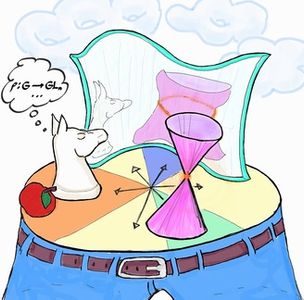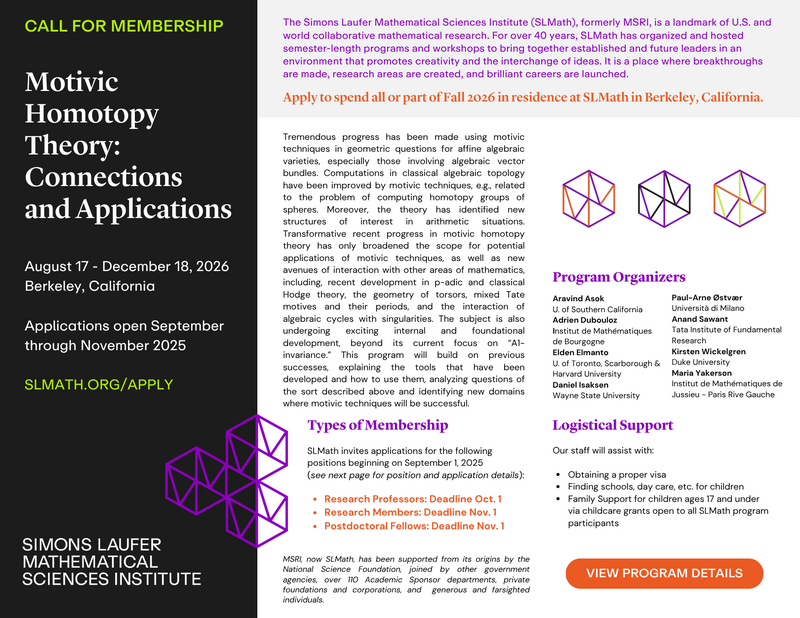Special Geometric Structures and Analysis
Date: 19 August - 20 December 2024
Location: Simons Laufer Mathematical Research Institute
Event type: Extended Format
Organisers: Eleonora Di Nezza (Jussieu), Mark Haskins (Duke), Tristan Riviere (ETH), Song Sun (Berkeley), Xuwen Zhu (Northeastern)
This program sits at the intersection between differential geometry and analysis but also connects to several other adjacent mathematical fields and to theoretical physics. Differential geometry aims to answer questions about very regular geometric objects (smooth Riemannian manifolds) using the tools of differential calculus. A fundamental object is the curvature tensor of a Riemannian metric: an algebraically complicated object that involves 2nd partial derivatives of the metric. Many questions in differential geometry can therefore be translated into questions about the existence or properties of the solutions of systems of (often) nonlinear partial differential equations (PDEs). The PDE systems that arise in geometry have historically stimulated the development of powerful new analytic methods. In most cases the nonlinearity of these systems makes ‘closed form’ expressions for a solution impossible: instead more abstract methods must be employed.
The aim of this program is to study geometric and analytic aspects of special holonomy metrics, instanton bundle over such spaces and the calibrated submanifolds within them. Because these objects are Einstein metrics, Yang–Mills connections and minimal submanifolds respectively they fit into a wider geometric framework. But because each of them satisfies a first-order PDE system they enjoy various special properties. This program takes the position that the natural viewpoint, both geometrically and analytically, is to consider these three classes of closely-related geometric objects together. A common feature is that weak solutions to these higher-dimensional equations may have interesting non-isolated singular sets whose detailed geometric and analytic structure is still poorly understood. Improving our understanding of such (partial) regularity of solutions is a key component of the program.
Professor Vincent Guedj (Toulouse) has been appointed as a Clay Senior Scholar to participate in this program.
CMI Enhancement and Partnership program
Related events
See all events
Knotted Surfaces in Four-Manifolds
Park City Mathematics Institute

p-adic Kudla Program and p-adic Automorphic Forms
CIRM

Representation Theory Under the Influence of Quantum Field Theory
Simons Laufer Mathematical Sciences Institute

Motivic Homotopy Theory: Connections and Applications
Simons Laufer Mathematical Sciences Institute